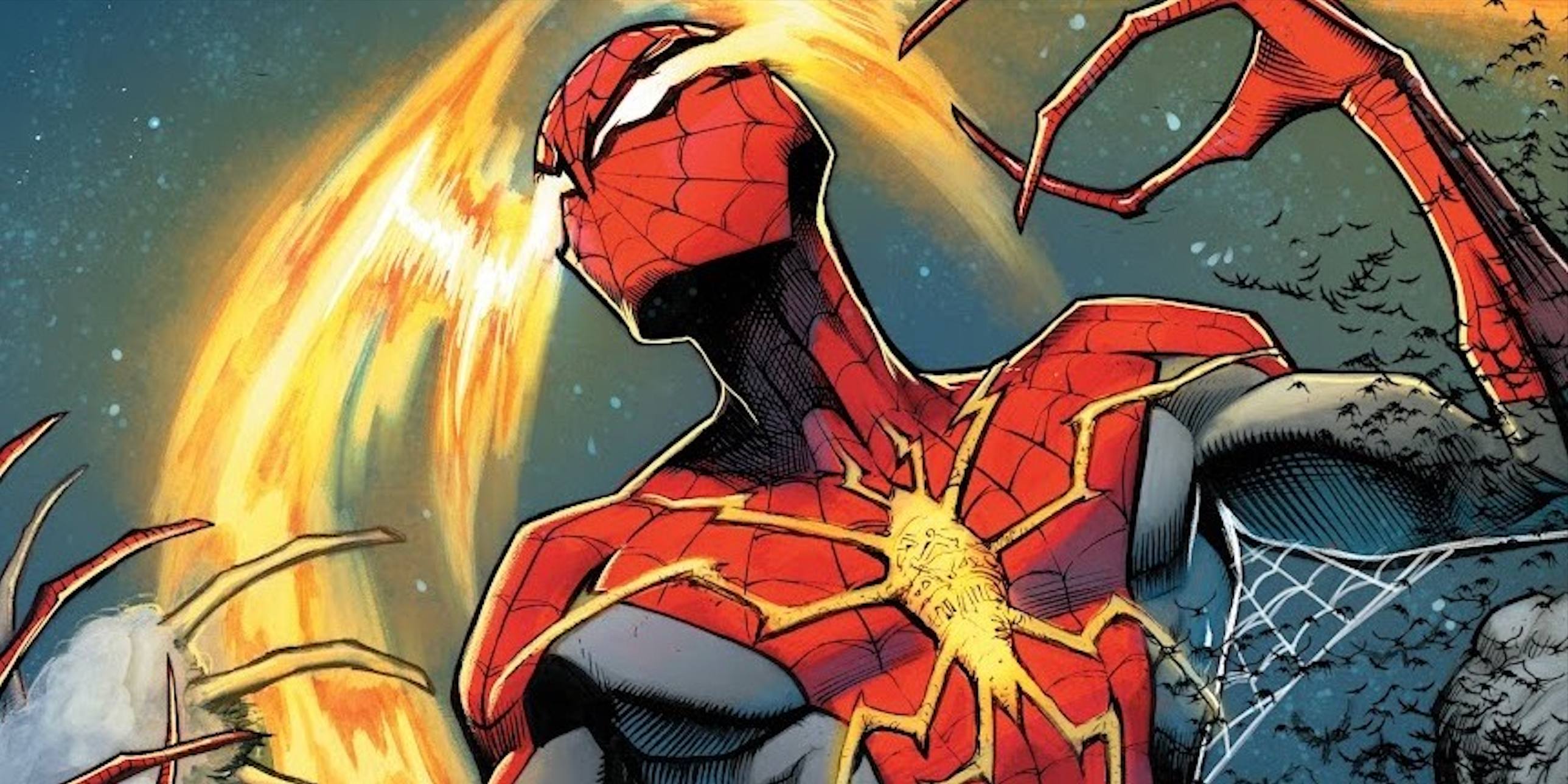Warning: SPOILERS for Deadly Neighborhood Spider-Man #4Marvel's Spider-Man may have over 60 years of history, but even Peter Parker himself subconsciously knows he's doomed to tell the same stories over and over again. While Spider-Man has changed a great deal since his introduction in Amazing Fantasy #15 in 1962, Marvel Editorial has sought to keep him as a young man, seemingly forever. Deadly Neighborhood Spider-Man #4 reasserts this, as even Spider-Man himself senses that he can never escape this cycle.
Marvel's sliding timescale often means the company plays fast and loose with continuity, especially when it relates to real-world time. For example, Captain America is perpetually depicted as a 30-40 year old soldier, despite being fished out of the ice in the 60s. In the same way, Peter is always portrayed as a man in his late teens or early 20s, never exceeding 30 (except in several alternate-universe tales). But while Captain America's character has certainly changed, Spider-Man's has not; he's still the same Peter Parker as he used to be...and makes the same mistakes he made a half-century ago.
In Deadly Neighborhood Spider-Man #4, written by Taboo & B. Earl with art by Juan Ferreyra, Spider-Man has traveled across the country to Los Angeles to assist in a scientific project. Unfortunately, the discovery of a mystical rock leads Peter to develop strange new forms, fight the Demon Bear, and confront his own demons in a Nightmare Realm. Despite everything, Peter realizes not much has changed. "I really thought coming to LA and focusing on science would give me a breather from my friendly neighborhood persona" he admits. "I don't think Spider-Man can ever get away from that story" his partner asserts, to which Peter reluctantly agrees.
Peter Parker Knows His Future As Spider-Man Won't Change
Spider-Man is destined to remain a single twentysomething trapped in a world in which he cannot change. Other characters and franchises have recently experienced massive changes to their status quo - the X-Men and their line-wide Krakoa reboot come to mind - but Spider-Man is, in many ways, consigned to the latter half of the Lee/Ditko era. Marvel's reasoning is quite simple: Peter Parker was created to appeal to a young reader, and he certainly excels at that. But the average comic book reader in 2023 is noticeably older than she/he was in 1963, yet Spider-Man stories rarely involve Peter moving forward in life. The reader changed but Spider-Man has remained the same.
Deadly Neighborhood Spider-Man may be a unique Spider-Man adventure, but Peter is right: when the story is over, he'll return to New York and begin his pattern all over again. While some fans desperately plead for Marvel to allow Peter to grow up and take the next step in life (marrying Mary Jane, raising children, or even simply putting effort into finding a better job), the franchise remains steadfastly stagnant. Spider-Man may be profitable, but for older readers, Peter Parker deserves to change.


